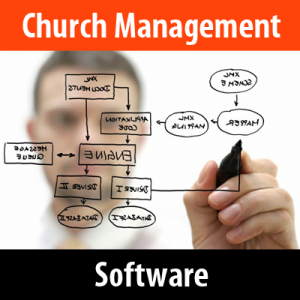Church leaders are constantly looking for the best software to manage their church databases and communications. The question many face is whether to pay for a commercial church management software (ChMS or CMS) or to use open source software.
The open source software movement kicked off in the 1980s and paved the way for operating systems like GNU/Linux and internet browsers like Mozilla Firefox. Open source software has spread into countless arenas including church management software. Given the availability of open source ChMS, church leaders should consider the advantages and disadvantages of using such products. So here’s a list of several pros and cons related to open source ChMS.
ADVANTAGES OF OPEN SOURCE CHURCH MANAGEMENT SOFTWARE
- Few, If Any, Licensing Fees – However, this advantage can easily evaporate because some open source ChMS creators have maintenance charges.
- Easy To Manage – You can install open source church management software on as many computers as you like without having to keep track of license compliance.
- Ongoing, Real-Time Improvement – Since anyone can access the code, anyone can fix bugs or make upgrades. Those changes are immediate and don’t have to wait for the next software release.
- Dependent Upon The Community – The sad reality in a free-market system is that sometimes companies fail. If the company that created the open source CMS goes under, the code can still exist and grow under the care of the user community.
DISADVANTAGES OF OPEN SOURCE CHURCH MANAGEMENT SOFTWARE
- Free Isn’t Necessarily Free – It was free to download and install, but open source church management software can result in unexpected implementation, administrative and support costs. In other words, you may need to hire one or more programmers or experts to set up your software, train your team, and keep it running. Additionally, you’ll probably end up spending a considerable amount on equipment and/or hosting for your open source CMS.
- Abandonment Issues– Some open source projects stagnate and die because some of the key leaders in the open source ChMS community quit, have disagreements, or simply lose interest. Functionally, open source church management software projects are almost always led by a couple of key developers (large companies or churches with deep pockets). If these key players move on to something else (which happens more often than not), the project gradually decays and goes away.
- You’re On Your Own– Unlike commercial church management software, no one in the open source community is under any obligation to help you at all. There is absolutely no guarantee of customer support; in fact, there’s almost a guarantee of no customer support.

